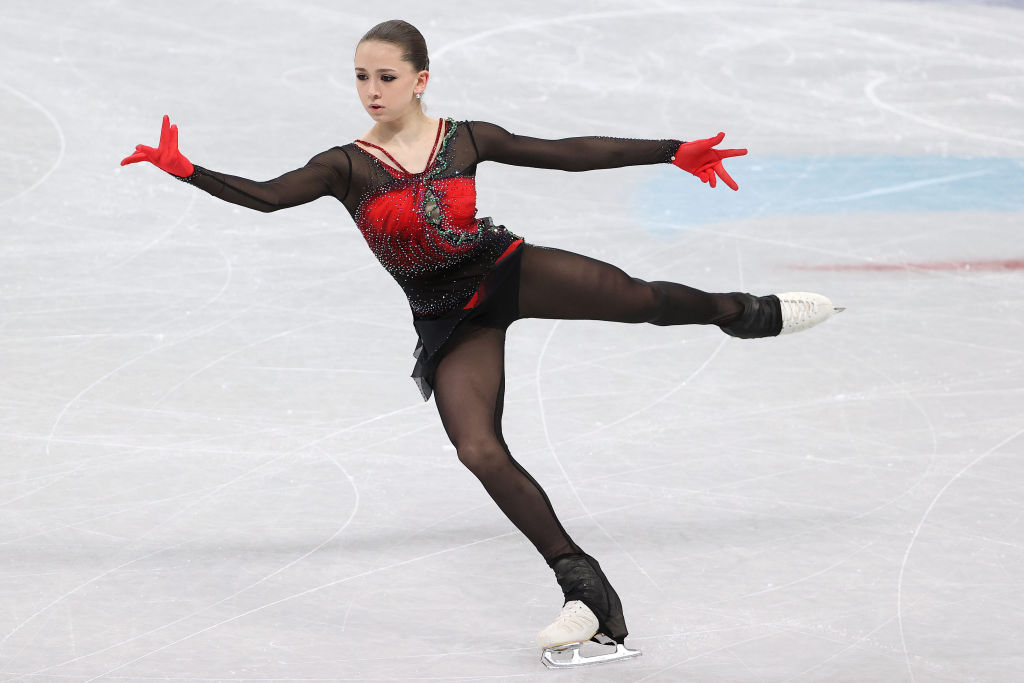What to Know About Kamila Valieva’s Reported Positive Drug Test and the Heart Medicine’s History in Doping
0 View
Share this Video
- Publish Date:
- 11 February, 2022
- Category:
- Herbs
- Video License
- Standard License
- Imported From:
- Youtube
Tags
After a day of swirling rumors and anonymous leaks, the Russian newspaper RBC reported that the star of the Russian figure skating squad, 15-year-old Kamila Valieva, tested positive for a banned substance.
The AP, citing the Russian newspaper, reported that Valieva—the gold-medal favorite who just days before became the first woman to land a quadruple jump in the Olympics—apparently tested positive before the Beijing Games, and even before the European Championships in January. International athletes are tested randomly at any time, both during and outside of competitions. Valieva reportedly tested positive for the drug trimetazidine, which is a heart medication generally prescribed to patients with angina to maintain blood flow and prevent blockages that can stop the heart. It can also reduce inflammation and relax blood vessels, and helps people who have had stents or heart operations to maintain the steady flow of blood from the heart to the rest of the body. [time-brightcove not-tgx=”true”]
On Feb. 10, Valieva was seen training at her assigned skating session in Beijing, ahead of the women’s event that starts on Feb. 15.
Anne-Christine Poujoulat—AFP via Getty ImagesRussia’s Kamila Valieva attends a training session on Feb. 11, 2022 prior the Figure Skating Event at the Beijing 2022 Olympic Games.
When and who tested Valieva is still unclear, and that could have implications for the next steps in the case. Depending on which competition Valieva was participating in when she provided the sample in question, it could be the Russian national anti-doping agency, the International Skating Union, or the International Olympic Committee (IOC). The Russian program is already under scrutiny for state-sponsored doping violations; the World Anti-Doping Agency (WADA) had ruled the Russian agency as non-compliant in that scandal. Because of that, the Court of Arbitration for Sport issued a two year ban on Russian athletes competing under their own flag and with their national anthem at international events, including the Tokyo and Beijing Olympics.
Beginning on Jan. 27, the IOC oversees doping control for Olympic athletes, which is carried out by the International Testing Agency. The ITA can also focus on specific sports or athletes for testing whom it deems have not provided sufficient samples through their respective national anti-doping programs. Even if an athlete tests positive for a banned substance prior to the Olympic period, that athlete could still face sanctions, including not being able to compete at the Games. In Valieva’s case, the IOC will likely be involved as well since she has already competed, in the team figure skating event, in Beijing.
Trimetazidine’s history in doping
The drug at the center of the controversy has had a darker history in recent years, as a doping agent by athletes looking for an extra edge in endurance, whether for training or for competition.
Since 2014, the World Anti-Doping Agency has listed trimetazidine as a metabolic modulator for that reason, since it can give athletes an unfair chemical advantage. Chinese swimmer Sun Yang served a three-month ban in 2014 after testing positive for the drug, while Russian bobsledder Nadezhda Sergeeva was disqualified from the 2018 Olympics and served an eight-month ban for the same drug.
It’s unclear whether Valieva has a heart condition or has another reason for legitimately using the drug. If either is the case, she would also have had to receive a special dispensation or medical allowance to use the medication.

Jean Catuffe—Getty Images)Kamila Valieva of Team Russia skates during the Women Single Skating Free Skating Team Event on day three of the Beijing 2022 Winter Olympic Games at Capital Indoor Stadium on Feb. 07, 2022 in Beijing, China.
What happens next after Valieva’s reported positive drug test
The medal ceremony for the team figure skating event, scheduled for Feb. 8 in Beijing, was postponed indefinitely. Neither the IOC nor theISU has issued a statement about the apparent violation. In explaining the delay at its regular press briefing on Feb. 9, IOC spokesperson Mark Adams would only say that “a situation arose today on short notice which requires legal consultation with the ISU…It’s an emerging issue, and I can’t add very much.”
Valieva’s case is also complicated by the fact that she is 15 years old and considered a “protected person” under the World Anti-Doping Code because she is not yet 16. That means more focus on her coaches and support team who advised her as she may be too young to fully appreciate and implement the anti-doping rules and policies. The maximum ban is shorter for a protected athlete, and at the very least may involve a reprimand, depending on the extent of her role and knowledge of the violation
Athletes can appeal doping violations, and the Court of Arbitration for Sport does have an office in Beijing to hear time-sensitive cases. If the Russian news reports are true, it could disqualify the ROC team, stripping them of the gold. That would mean the U.S. earns gold, current bronze medal winners Japan would be elevated to silver, and fourth-place Canada the bronze.
Depending on the process, it could also prevent Valieva from competing in the women’s event that she was widely expected to win, due to start next week. Valieva, the Russian national champion, provided a glimpse of her stunning talent in the team event, skating both her short and free programs and making history as the first female skater to land a quadruple jump at the Olympics. That accolade too could also come with an asterisk if the reports are confirmed that she has been using a banned substance without receiving a medical exemption.














